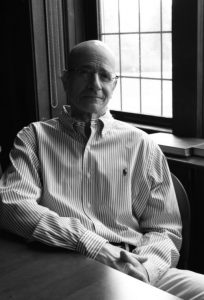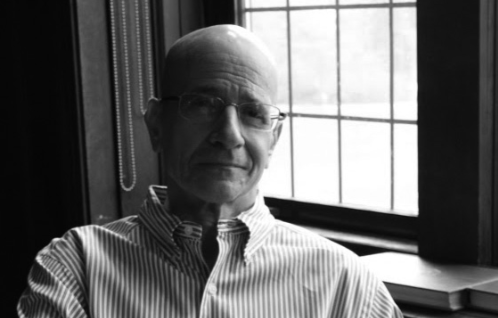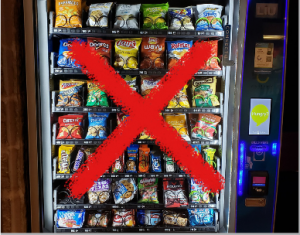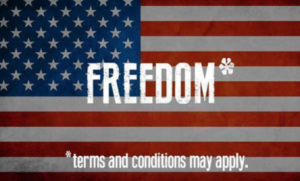Last updated on Dec 2, 2016
By Adam Hornbuckle
Political Columnist
As we inch closer to a Donald Trump presidency, many students seem to have more questions than answers; people simply want an idea of what the administration of this controversial candidate will be like. Three of our Political Science professors weighed in on what we may expect.

Q-What effect do you think Donald Trump will have on trade, and how do you foresee him interacting with the current US trade partners?
A-“I think we will see moderation, I think TPP* is dead. The consequences of TPP going away will not help us with the politics of Asia. This is the one area where presumably [Trump] has his strengths, so I hope there will be improvements here.”
-Michael Soupios, professor of political science
*TPP: the Trans-Pacific Trade agreement among twelve countries, including the U.S., located around the Pacific. Read more at ustr.gov/tpp.
Q-How do you foresee the Supreme Court nomination process going under a Donald Trump presidency and what is at stake with this nomination?
A-“I think Trump cares little about the judiciary, aside from how it handles the multitude of lawsuits still pending against him. So he’ll delegate authority over selection to either Vice-President-elect Pence or Senate conservatives. As for impact, replacing Antonin Scalia with a fellow conservative means that the Supreme Court won’t shift leftward, as it would have done if Merrick Garland had been confirmed or the election had gone differently. But liberals will be able to hold their ground on any issue where they can garner Anthony Kennedy’s vote. The greater shift would come if another vacancy were to emerge because one of the liberal justices left office. I’m expecting that they won’t be leaving voluntarily.”
-Jeremy Buchman, professor of political science
Q-Students are concerned that a Trump presidency will mean more war in the Middle East. Do you think Donald Trump would hesitate to deploy more US soldiers to the Middle East?
A-“Trump’s chosen foreign policy and national security advisers, [and] his tough talk about America’s power, suggest that he believes in using force. Upon assuming office, he will have to deal with a host of complex national security challenges: Afghanistan, Iraq, Syria, radical jihadists, Iran’s expanding influence across the Gulf and the Arab East, North Korea, Putin’s threats in the Baltics and in Europe. And if Trump doesn’t form and listen to a team of Cabinet members and advisers who know about the Middle East and don’t look at it through the lens of enmity to Islam, he will be unable to formulate a clear Middle East policy and a larger U.S. strategy. Trump may be averse to use the ‘big stick’ sparingly and without hard thinking. But if he acts on the anti-Muslim statements of his campaign, if he shares Michael Flynn’s assertion that Islam is an infectious ‘cancer’ and Steve Bannon’s rejection of a multicultural, multi-ethnic society, if he follows policies, and endorses and doesn’t silence pronouncements that make Muslims all across the board feel that they are the hated enemy, he will be embracing the grim vision expressed by the Venetian nationalist demagogue in Michael Dibdin’s novel, Dead Lagoon: ‘Unless We Have What We Are Not, We Cannot Love What We Are.’ And this will isolate America and drag her into a clash of cultures and cultural identities fraught with military entanglements.”
-Muhammad Muslih, professor of political science
Q-Students of the LBGTQ community are concerned that their rights will now be endangered. Can you give these students any assurance and how do you foresee a Donald Trump presidency affecting this already disenfranchised community?
A-“Campaign rhetoric plays to the base, but it’s all different when it comes time to govern. I suspect this administration will not be a friend [to the LBGTQ community]. I don’t think at the end of the day there will be any rollback, status quo I suspect will be it.”
-Michael Soupios, professor of political science
Q-Do you believe Donald Trump will pose a threat to women’s rights and the rights of disenfranchised communities?
A-“Yes. Not personally per se, but through his appointments to executive and judicial positions. Obama had done much to shift the lower courts leftward, and even a wave of Trump appointees won’t entirely offset that. But the executive bureaucracy has a great deal of power, and much of it can be deployed in nefarious ways without attracting public attention.”
-Jeremy Buchman, professor of political science
Q-How can Donald Trump improve foreign relations with Israel and do you think he will?
A-“On Israel, so far Trump has been circumspect and cautious, either because he might be thinking that he wants to avoid taking positions that might compromise future efforts he has in mind to broker a deal between Israel and the Palestinians, or because he could be interested in working with Israel on what is in his mind the more important issues of fighting ISIS and reversing or modifying the Iran nuclear deal. And regardless of what Trump really thinks about how to correct Obama’s frayed relationship with Israel, this relationship is too deep and too multidimensional to weaken or fail.”
-Muhammad Muslih, professor of political science






Be First to Comment